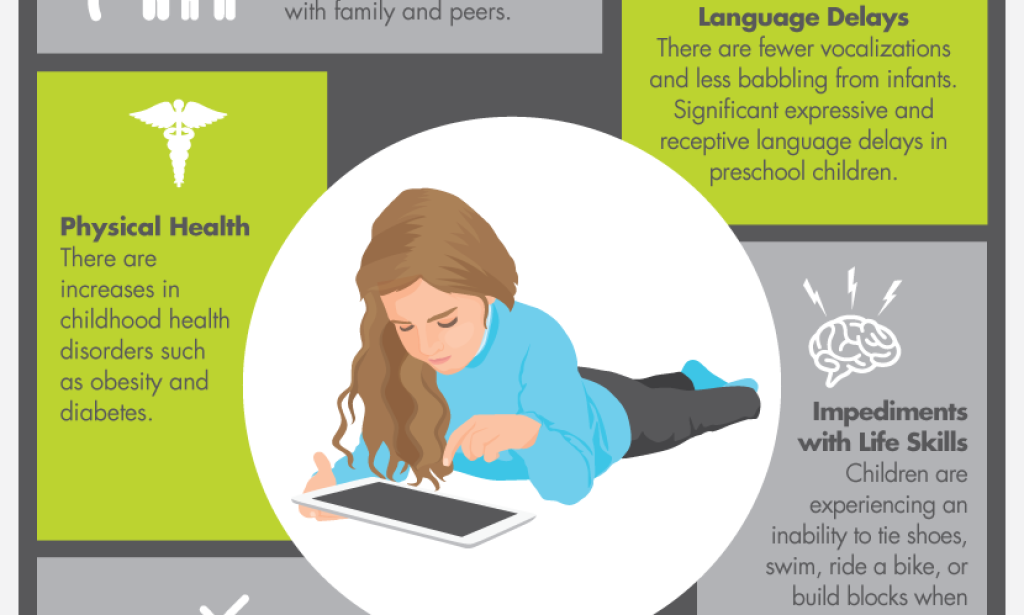Table of Content:
- The Prevalence of Screen Time in Children
- Physical Health Implications
- Cognitive and Academic Development
- Social and Emotional Impacts
- Addiction and Behavioral Concerns
- Digital Content and Psychological Impact
- Screen Time Guidelines and Strategies for Parents
In today's digital age, screens have become an integral part of our lives, profoundly influencing how we communicate, learn, and entertain ourselves. For children, screens are ubiquitous, providing access to a vast array of information and entertainment at their fingertips. However, the excessive use of screens, including smartphones, tablets, computers, and televisions, has raised concerns about its impact on their physical, mental, and emotional development. This article aims to explore the potential effects of screen time on children and offer insights into maintaining a healthy balance in their digital engagement.

The Prevalence of Screen Time in Children
Screen time has become an inseparable aspect of modern childhood. Young children, even toddlers, are often exposed to screens, either through educational applications or as a means of pacification. According to a study conducted by Common Sense Media, children aged 0 to 8 years spent an average of 2 hours and 19 minutes on screens per day in 2017, with the number likely to have increased in recent years. This early exposure to screens has sparked debates among parents, educators, and health professionals regarding the short and long term effects.
Physical Health Implications
One of the primary concerns associated with excessive screen time is its impact on children's physical health. Prolonged screen use can lead to sedentary behaviors, reducing the time children spend engaging in physical activities. As a result, the risk of obesity and related health issues may increase. Additionally, extensive screen time, especially before bedtime, can disrupt sleep patterns, leading to sleep deprivation, and negatively affecting overall health and cognitive function.
Cognitive and Academic Development
While educational content and interactive apps can provide valuable learning experiences, the over-reliance on screens might hinder the development of crucial cognitive skills. Studies have indicated that excessive screen time in young children may be linked to delays in language acquisition, attention span, and problem-solving abilities. Moreover, a correlation has been observed between higher screen time and lower academic performance in older children, indicating the need for balance in their digital activities.
Social and Emotional Impacts
Human interaction is essential for children's social and emotional development. Excessive screen time may lead to a lack of face-to-face social interactions, affecting their ability to read and respond to emotional cues effectively. Moreover, constant exposure to social media and online content can create unrealistic expectations and negatively impact self-esteem, leading to feelings of isolation, anxiety, and depression, particularly in adolescents.
Addiction and Behavioral Concerns
The instant gratification provided by screens and the availability of online games, videos, and social media can contribute to screen addiction in children. Excessive screen use can alter dopamine levels in the brain, leading to addictive behaviors and difficulty in self-regulation. This can result in temper tantrums, aggression, and a decline in offline interests and activities. Parents and caregivers must monitor screen time and encourage other forms of play to foster a healthy development.

Digital Content and Psychological Impact
The nature of content children are exposed to on screens also plays a vital role in shaping their minds. Violent or inappropriate content can desensitize children and increase aggressive behaviors. Similarly, exposure to unrealistic body standards and cyberbullying can have lasting psychological effects. Responsible content curation and parental controls are crucial in mitigating these risks and promoting a positive digital experience.
Screen Time Guidelines and Strategies for Parents
Given the impact of screen time on children, it is essential for parents and caregivers to establish appropriate guidelines and strategies for screen use:
Set reasonable screen time limits:
The American Academy of Pediatrics (AAP) recommends that children aged 2 to 5 should have no more than one hour of screen time per day, while older children should be limited to 1-2 hours daily.
Encourage quality content:
Prioritize educational and age-appropriate content that fosters creativity and critical thinking.
Establish screen-free zones:
Designate specific areas in the home, such as bedrooms and mealtime areas, as screen-free zones to promote family interactions.
Lead by example:
Parents should model healthy screen habits to encourage children to do the same.
Engage in joint screen activities:
Co-view or co-play with your child to enhance social interactions and promote discussions about what they are seeing or playing.
Encourage outdoor play:
Facilitate physical activities and outdoor play to counterbalance sedentary screen time.
Teach digital citizenship:
Educate children about responsible online behavior, cyberbullying, and the importance of privacy and security.

Screen time has become an integral part of modern childhood, providing numerous opportunities for learning and entertainment. However, excessive screen use can lead to adverse effects on physical health, cognitive development, social skills, and emotional well-being. As parents and caregivers, it is essential to strike a balance between screen time and other activities, ensuring that screens are used as tools for enrichment rather than a hindrance to children's holistic development. By setting reasonable guidelines and fostering responsible digital habits, we can empower our children to navigate the digital world safely and positively.


You must be logged in to post a comment.